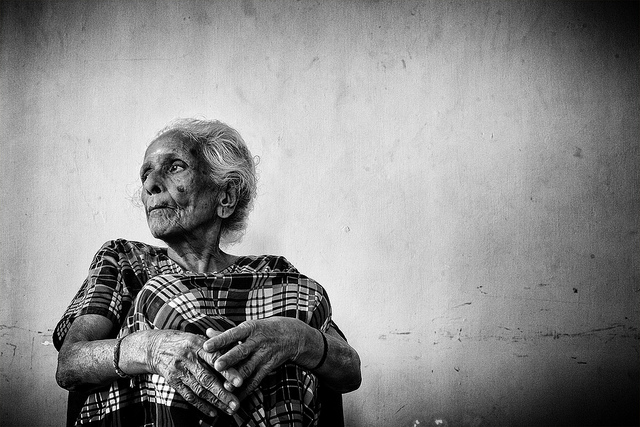Coping With Success: How India's Elderly Suffer With Their Children Abroad

With over 1.2 billion people and counting, the Indian homeland hosts more than one-sixth of the world’s population. Yet there is something to be said when the second most populated country in the world also has the third largest global diaspora.
Inhabiting around 110 countries worldwide, Indians are everywhere. Whether it be in the United States, South Africa, Canada, Australia, the United Kingdom, the UAE, Oman, the Netherlands, the West Indies, or Kenya, these “NRIs” generally have the same common goal: to live out a life that staying in India couldn’t provide them with. However, no matter how successful NRIs are in their global quest for better opportunity, their parents back in India are, in many cases, forced to suffer through the rest of their lives in neglect and abandonment.
The essential themes of Indian cultural life are centered around family. The joint family, in particular, was highly valued, ideally consisting of several generations residing, working, eating, and worshiping together.Even in rapidly modernizing India, the traditional joint household, though not as much in practice, has affected the importance of family, as close kinship remains, for most Indians, the primary social force of life. This notion of kinship ties for support through life is thus still central to everyday life in India. With NRI parents being so accustomed to this strong Indian culture of kinship, the emotional turmoil they experience when their children leave is paramount.
While family disintegration is something that can be caused by a number of things, it is especially acute among the parents of NRIs, as access to their children is harder and infrequent. These elderly parents, who are left alone, feel the pangs of depression, loneliness, lack of identity and physical and mental insecurity.
Such trauma felt by NRI parents is well documented by the NRIPO, (Non-Resident Indians’ Parents’ Organization), a support group for aging parents of NRIs. According to NRIPO’s president, Nandkumar Swadi, the single biggest problem for NRI parents is the “empty nest syndrome,” a feeling of grief and loneliness that is felt when their children move abroad. Swadi explains this phenomena of empty nest syndrome, “The house which used to reverberate with children’s laughter and happiness suddenly appears to become gloomy. The parents who once nursed their kids, who went to work abroad now suffer from sudden loss of identity. They have enough time at their disposal, but nothing much to do, which causes emotional turmoil.”
It’s not as though NRI children are ignorant to the pains their parents suffer through. Many NRIs strive to support their parents by sending money and gifts home. Often though, the parents are reasonably well off and aren’t pressed for financial support. What they hunger for instead is emotional support and love.
There is no question that most parents of NRIs are proud of the accomplishments their children have achieved overseas. As is common amongst most parents, if their children are happy, then they are happy. Yet, underneath this happiness that NRI parents outwardly show, is a hidden burden of depression and self-pity that thrives at the expense of their children’s success.
[Image Attribute: Flickr]



